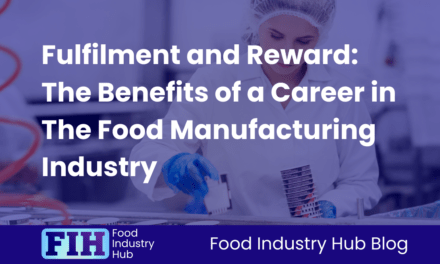The food manufacturing industry is one of the most diverse and vibrant sectors in the world. There are numerous opportunities available to those looking to enter into or develop a career in this field, ranging from full time employment to interim, consultancy, speaking, advisory, research and academic positions. Whether you’re a student looking for part time projects or an experienced professional seeking a new challenge, there’s sure to be something suitable for you.
Permanent Employment
Permanent employment is a common option in the food manufacturing industry as it provides long-term job stability for employees. This type of employment often includes benefits such as holiday entitlement and retirement plans that ensure employees are well taken care of. In addition to job security, permanent employment also offers opportunities for career growth and development within the company.
One advantage of permanent employment is employee loyalty to the company, which can lead to increased productivity and efficiency. For employers, this translates into reduced recruitment costs and higher retention rates. By investing in their employees’ careers through training programs and advancement opportunities, companies can foster a sense of community among their workforce.
However, there are also some downsides to permanent employment such as limited flexibility with work schedules or potentially slower career advancement depending on the hierarchy within the company. Ultimately, it comes down to personal preference and priorities when choosing between different types of opportunities in the food manufacturing industry.
Fixed Term Contracts
Fixed-term contracts are a common type of employment agreement in the food manufacturing industry. These contracts specify the start and end dates of employment, typically ranging from six months to three years. They provide employers with flexibility when it comes to hiring needs and allow them to bring on staff for specific projects or busy periods without committing to a permanent position.
Fixed-term contracts also benefit employees by providing more job security than short-term or casual employment while still allowing for flexibility. During the contract period, employees are entitled to all the same benefits as permanent staff, including sick leave and annual leave entitlements.
However, it’s important for both employers and employees to understand that fixed-term contracts have limitations. Employers cannot simply renew these contracts indefinitely, as this could expose the company to liability under employment laws. As for employees, they must be aware that their contract will come to an end at a specified time and may not lead directly into another job opportunity within the company.
Interim or Consultancy Positions
Interim or consultancy positions are becoming increasingly popular in the food manufacturing industry. These positions offer a flexible and dynamic career option for experienced professionals who prefer to work on short-term projects rather than full-time roles. Interim positions can range from a few months to several years, depending on the project’s scope and complexity.
Consultancy positions provide an opportunity for professionals to share their expertise with different organisations and help them solve specific problems. Consultants often work with clients on a project basis, providing advice, guidance, and solutions to help companies achieve their goals. They also bring innovative ideas and new perspectives that can be valuable for companies looking to innovate or grow.
Interim or consultancy positions offer many benefits like flexibility, variety of work experiences, exposure to different sectors/companies/teams/cultures/challenges/goals/targets/etc. Opportunities for learning and development (from the experience of interacting with various stakeholders) and networking, amongst others, make them an attractive option for those seeking diverse careers in the food manufacturing industry.
Switching jobs too frequently could indicate that you are restless and unable to settle into a role or work environment. This might raise concerns with potential employers about your ability to commit and stick around long enough to make an impact on the company. Conversely, being complacent in your job can lead to stagnation and a lack of professional development.
It is important for professionals in the food manufacturing industry to strike a balance between job stability and career growth by seeking out new challenges within their organisations while still maintaining a level of dedication and commitment that will demonstrate their value as employees.
Sign-up for the Food Industry Hub Mail Service
We regularly produce new content for food industry professionals, and the Food Industry Hub Mail Service is the best way to stay up to date with the latest additions.
Signup today to be added to the Food Industry Hub mailing list.
Project Management
Projects can present opportunities for a variety of employment models. One of the more prominent areas in food manufacturing where project management skills are required is in product development. Developing new products involves a series of activities that must be completed within a specific timeline and budget. These activities include conducting market research, creating prototypes, testing, and launching the product. Project management helps ensure that these tasks are completed efficiently by balancing resources, managing risks, and ensuring that deadlines are met.
Another area where project management plays an essential role in the food manufacturing industry is process improvement initiatives. Food manufacturers continuously seek to enhance their operational efficiency by reducing waste, increasing throughput, and improving quality control measures. Project management methodologies such as Six Sigma or Lean Manufacturing can help achieve these objectives by identifying opportunities for improvement, implementing changes systematically, while minimising disruption to production processes.
Academic Positions
Academic positions in the food manufacturing industry are a great option for those who enjoy research and teaching. These positions typically require a PhD or other advanced degree, and can be found at universities or research institutions. As an academic in the food manufacturing industry, you would have the opportunity to conduct research on topics such as food safety, chemistry, microbiology, nutrition, and product development. You would also have the chance to teach courses related to these subjects.
One benefit of academic positions is that they often provide more job security than many other roles in the food manufacturing industry. Additionally, these positions can offer flexible schedules that allow for a good work-life balance. However, it’s important to note that competition for academic jobs can be fierce, so it’s important to have a strong educational background and relevant experience.
If you’re passionate about both food manufacturing and education/research, then an academic position could be an excellent fit for you. With hard work and dedication, you could make significant contributions to this field while enjoying a fulfilling career path.
Speaking or Publishing
Speaking or publishing are two great ways to gain exposure and establish yourself as an authority in the food manufacturing industry. Speaking at industry events, webinars, and conferences can help you expand your professional network and reach potential clients or partners. It’s important to prepare well for public speaking engagements, ensuring that your message is clear, concise, and engaging. You can also publish articles or white papers on relevant topics in trade publications or online platforms to increase your visibility.
In addition to personal branding benefits, speaking or publishing can also help drive business growth for food manufacturers. By sharing insights on industry trends and best practices, you can position yourself as a thought leader while also showcasing your company’s expertise. This increased visibility may lead to new business opportunities in the form of partnerships or client referrals.
Ultimately, whether through speaking engagements or published works, establishing yourself as a trusted voice in the food manufacturing industry can be a valuable asset both personally and professionally.
Summary – The Diversity of Opportunities in The Food Industry
The food industry is a vast and diverse sector, offering numerous opportunities for individuals looking to build a career. From manufacturing to distribution, the food industry encompasses various types of roles that cater to a wide range of skill sets and interests. Taking into account your personal circumstances and goals, you may choose to pursue a wide range of opportunities from full-time permanent employment to academic study and self-employment.














